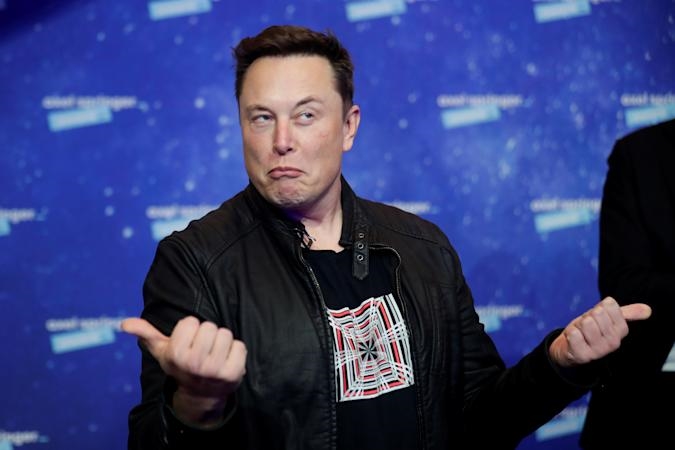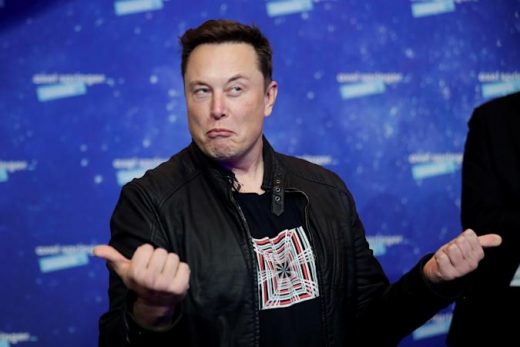Twitter is reportedly re-examining Elon Musk’s $43 billion takeover bid
Elon Musk’s Twitter bid is as well thought out as his tweets
Running Twitter is a lot harder than tweeting from the toilet.


Elon Musk, who until the last week or so, was known on Twitter mainly for trolling and incurring the wrath of the SEC, has now set his sights on taking over the platform. Speaking at a TED conference on Thursday, the Tesla CEO positioned his $43 billion hostile takeover bid not as something he wants to do, but as something he feels is “important to the function of democracy.”
“It’s important to the function of the United States as a free country and many other countries,” he said. “Civilizational risk is decreased, the more we can increase the trust of Twitter as a public platform.”
That may sound like a lofty goal — and it’s not that different from how Jack Dorsey and other Twitter leaders have talked about the platform — but Musk’s actual ideas for making Twitter more “trustworthy” are bizarre and sometimes contradictory. It suggests he has little understanding of how Twitter works, much less how to run the company.
During the interview, Musk repeatedly stated he believed speech on Twitter should only be constrained by what’s legal. Twitter, he said, should “err on the side of, if in doubt, let the speech exist.” He said that permanent bans should be used sparingly. “A good sign as to whether there’s free speech is, [if] someone you don’t like is allowed to say something you don’t like, and if that is the case, then we have free speech.”
Besides being a somewhat narrow view of free speech, Musk’s own track record would appear to be at odds with this statement. While he has zero experience running a social media company, his actions as Tesla’s CEO suggest there are many scenarios in which he is notably less committed to absolute free speech.
As Quartz points out, Musk has reportedly fired numerous Tesla workers who disagree with him. Recently, one employee was shown the door for posting videos to his personal YouTube channel that depicted flaws in Tesla’s self-driving software running on his own vehicle. Musk also reportedly tried to force a law firm, hired by Tesla and SpaceX, to fire an associate who had previously worked for his arch-nemesis the SEC, in an apparent retaliation for the lawyer’s involvement with the agency’s investigation of Musk. Incidentally, Tesla has faced allegations of discrimination and is currently contending with a lawsuit from the state of California over its treatment of Black employees.
Trust and safety experts were also quick to point out that a lack of content moderation actually has a chilling effect on free speech. “Effective moderation is not inherently in conflict with free speech,” Samidh Chakrabarti, Facebook’s former head of civic integrity tweeted. “It is required for people to feel free to speak.”
This is more than just theoretical. Just ask former CEO Dick Costolo who famously presided over one of the most toxic eras in Twitter history thanks to a hands-off approach to content moderation. It was under his tenure as CEO that Gamergate and other targeted harassment campaigns were able to drive scores of users off the platform. Costolo later admitted that his failure to deal with trolls was a huge mistake.
Others pointed out that less moderation would quickly result in Twitter being overrun with spam and other shady — yet entirely legal — content. Even Musk seemed to contradict himself on this point, saying that a “top priority” would be to rid Twitter of the “spam and scam bots and bot armies” that frequently impersonate him.
Away from the culture war battles over “free speech,” Twitter is facing significant challenges of its own. The company is still in the middle of a big shift, changing many of its core features in an effort to find new sources of revenue. It still has aggressive growth targets for users and revenue that would prove challenging even for seasoned Twitter insiders — which Musk is not.
And Musk doesn’t even seem to know what he actually wants. He acknowledged that he was unsure of if he would be able to pull off actually buying Twitter (other shareholders seem to agree on that point) and claimed to be unconcerned with making money from his investment. He claimed to have a “plan B,” but didn’t share details. He also admitted that his tweets are little more than a “stream of consciousness” he sometimes composes while on the toilet.
As with so much else he does, it’s impossible to tell if he really wants to fully control Twitter or if all this is yet another elaborate troll. It could be both.
“I do think this will be somewhat painful,” he mused. On that, at least, he’s spot on.
(27)


